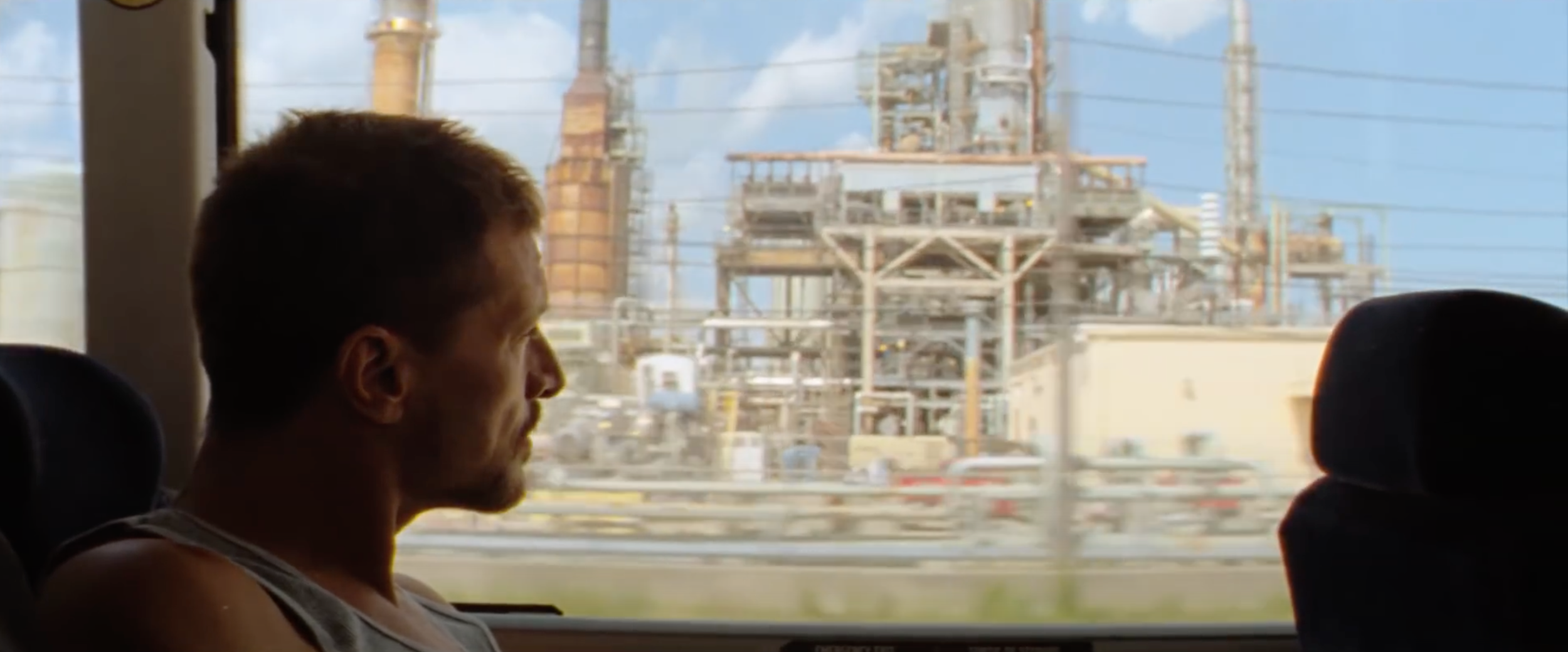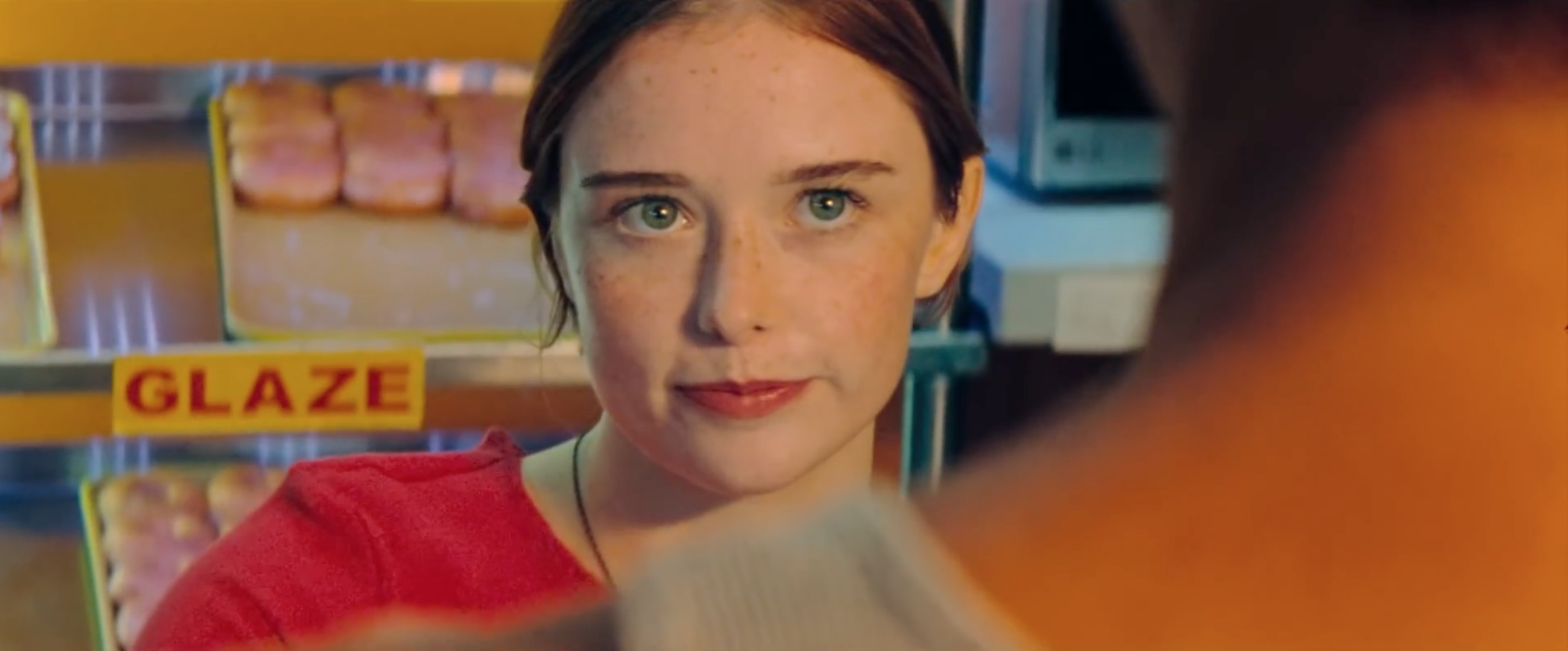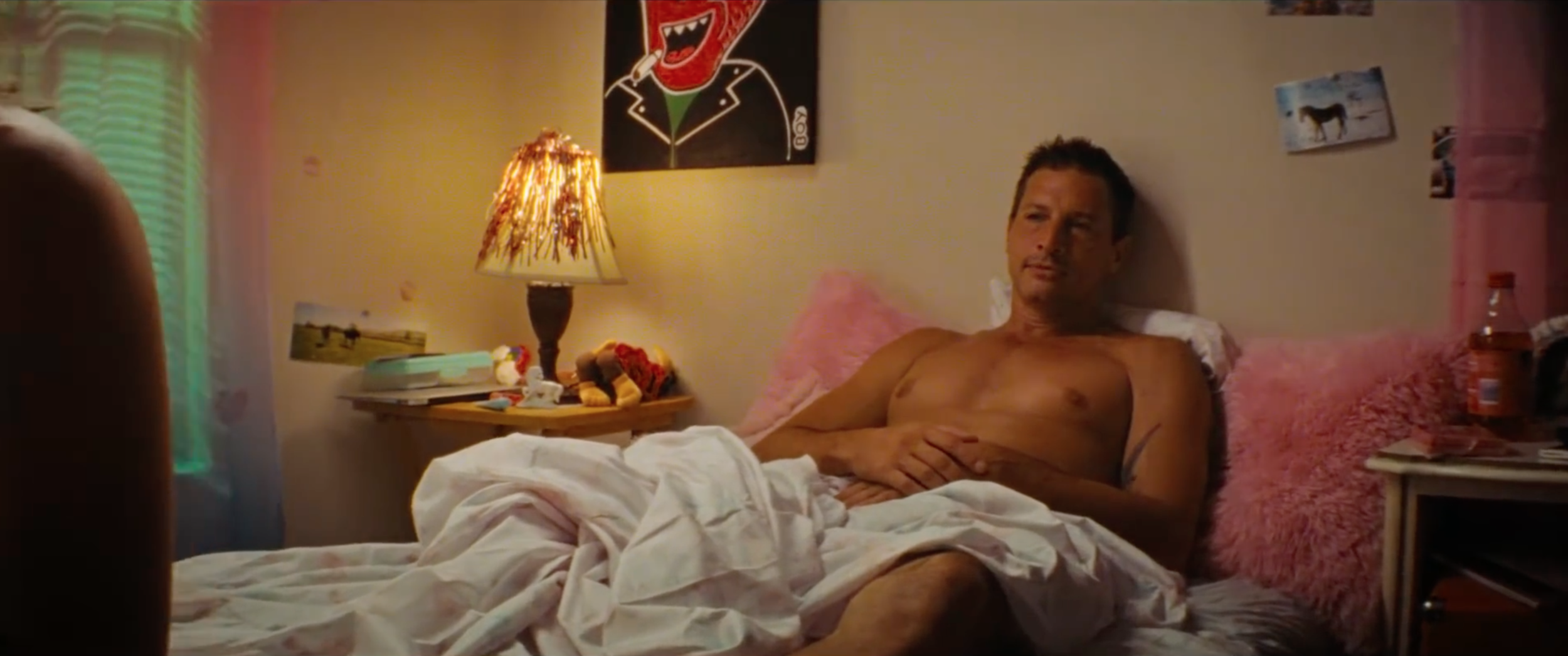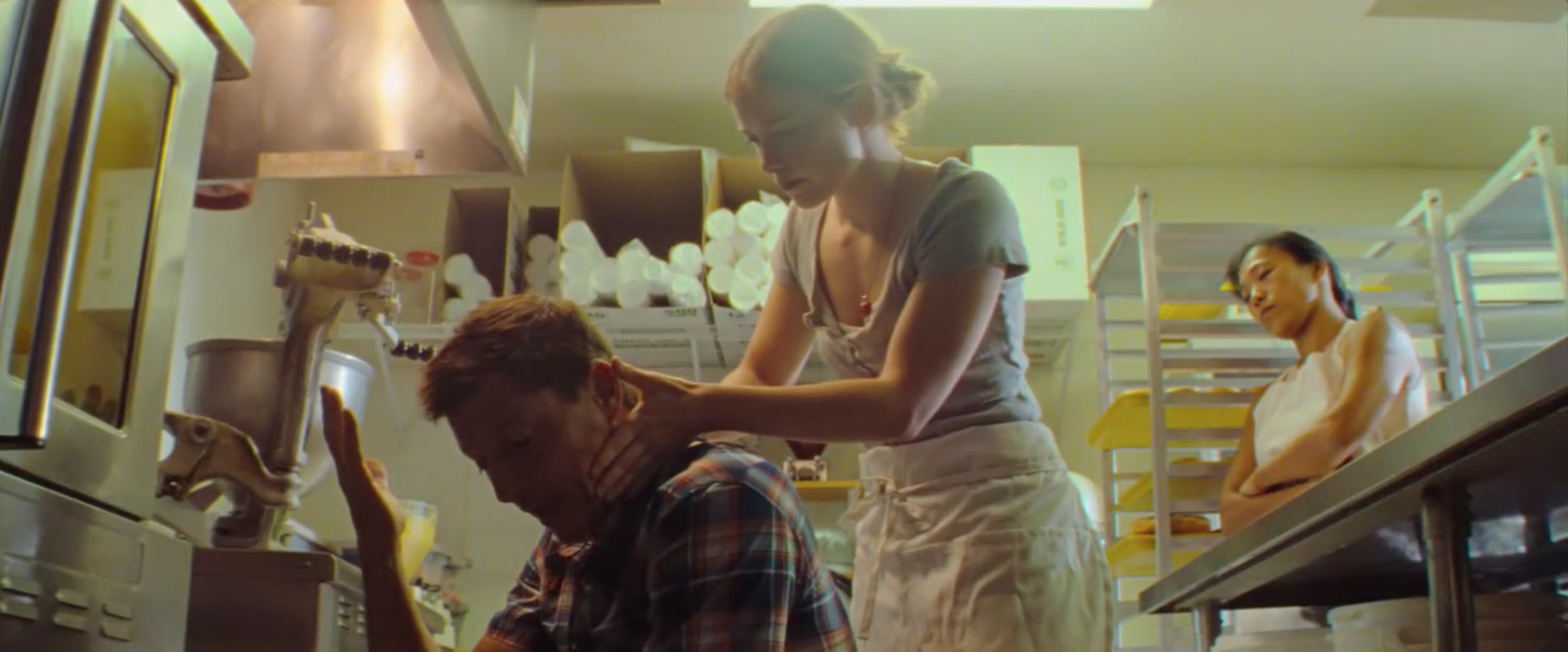NYFF 59 Review: ‘Red Rocket’, The American Dream Comes Home
“The universe is on my side, bro.”
Washed-up pornstar Mikey Saber sticks out in his hometown of Texas City, Texas. A big part of it is his natural talent but it’s the deep, catching sense of optimism stretching his face that truly sets him apart. His searching blue eyes and handsome rugged smile burn brightly against the faded landscape of this oil town. Plumes of smoke and fire rise casually up from refineries behind scenes of worn white houses, gas stations, and empty lots, with figures milling about these structures as if they were stuck in honey, slow and sleepily. This is the context which grounds writer-director Sean Baker’s new feature Red Rocket, his latest project to intelligently and compassionately observe a slice of reality in certain marginalized communities in the U.S.
We come to this corner of the country by way of Mikey, played with electric charisma by real-life former pornstar, first time dramatic actor, Simon Rex. He returns to town by bus, beat up bearing purple-black bruises, and has a messy story of excuses and accusations about the reasons he had to leave Hollywood and his AVN award-winning career behind. With just the sullied grey clothes on his back, he beelines from the bus stop to the house of his estranged wife and former porn co-star Lexi (Bree Elrod) and her mother (Brenda Deiss) where he lays his tale of woe at their feet. They try to turn him away but he has nowhere to go and he is relentless, charming, and inexhaustible till they eventually cede their couch.
The story takes place in the summer before the 2016 election, which Mikey, Lexi, and her mother watch incendiary evidence of on the TV with footage from Donald Trump rallies, the DNC, and cable news. There are literal signs and flags that dot some of the landscape, as well as some subtle conversation which reveal an increasing polarity between people, but the most cogent political expression of the film is the extinguished town itself. The election is the American project, Mikey Saber is the American dreamer, and the Texas City is the American reality.
Mikey Saber and the American political project are similar because they are corrupt, self-serving, and different to the extent that they are often at odds with Texas City’s reality.The election is consumed on TV the same as various other reality TV shows, and its spectacle and bombast are muted so that it feels strange and disconnected from the town, as much as other major network programs. The people watching the election observe it passively because it has little bearing on life in town. The milieu of life here reflects that, namely an effective diegetic sound motif of a disaster alert broadcast that periodically echoes in the background of scenes, which becomes frightening and affecting precisely because no one reacts to it. Disaster has firmly arrived here in America, there is no recourse or emergency plan for most of its citizens who perpetually exist outside of relief or opportunity or change. The alarm resounds with a heavy sense of resignation, but it is not benign. Because as bad as things are, things can always get worse.
Mikey Saber is the protagonist because where others have been worn down to stasis he is still chasing the dream. If the American Dream is about the achievement of personal freedom and happiness, Mikey is perfectly obsessed with that vision, as he puts himself first in every situation and fails to identify himself as ever in the wrong or harmful to others. His pursuit of the dream has him hustle, selling weed for a stately black matriarch who he used to deal for back when he was in high school, and exploiting all the relationships in his life for personal gain. But Mikey is slick and charming, he exudes sweetness but has a mischievous smile. He gets rides all around town from his neighbor Lonnie (Ethan Darbone), a late 20s man who Lexi used to babysit as a kid, and talks incessantly about himself and his former career. Mikey has the total admiration and respect of his neighbor who is disheveled and unemployed, and Mikey is careless abusing his rapt neighbor to tragic ends in the film.
This relationship only sustains Mikey’s transit needs and his compulsion to self-mythologize, but Mikey sees a way back to the good life when he meets a just shy of eighteen teenager named Strawberry (Susanna Son). She works at a donut shop and as soon as he sees her over the counter he is stricken by her beautiful, exploitative potential. Mikey is likely two decades her senior, but the relationship that the two engage in typifies the contradictory character that Mikey is. Despite the inherent wrongfulness of their being together, which leads them for separate reasons to keep their intimacy secret, the scenes of them acting as a couple are fun, flirty, and kind. There is an easy playfulness and charm to both of them, and the smolder of when the two lock eyes is mystifying, so intense yet seemingly carefree is their gaze.
Mikey has plenty of real life concerns though. It’s just that he views Strawberry as the ideal means of his getting back out of Texas and back to the high life in Hollywood he has known, and so he can look at her with all the wonder in the world. Mikey does not understand himself through his actions. He schemes yet he is ignorant of the way he hurts other people, and he experiences life as a a series of misfortunes that he has to outmaneuver and triumph over. Meanwhile, he cannot place himself in relation to any misfortune that’s befell him; he thinks of it as the cruelty or unfairness of others, but when he is spared any disaster and succeeds he thanks God and himself. Mikey is an opportunist in a land with little opportunity, but he still squeezes the people around him for as much as they are worth. Even at the film’s conclusion he never stops dreaming of the next opportunity to seize upon.
One of the strongest stylistic flourishes of the film is the unusual but excellent selection of the iconic boyband song “Bye Bye Bye” by The Backstreet Boys for the film’s score, spiking innocent pop flavor with the scandal of its scenes. The song plays at the top when Mikey arrives via bus, and threads the rest of the film in punchy moments. The carefully calculated flash of the hit pop song riffs on some of the more pleasant, humorous, and handsome qualities of Mikey, but it also reflects Mikey’s contrasting energy and demeanor from Texas City, the way he is consistently performative and self-venerating. It is such a commendable choice of music because the song cannot be heard the same after the film; it is helplessly corrupted by Mikey’s character and the burn of the film.
This film finds new dimension to what Baker’s work has done in the past and delights in the authenticity of its American vision and characters. Red Rocket is Baker’s most overtly political project, and certainly possesses a degree of the solemn seriousness of The Florida Project which also plainly depicts the invisible hardships of everyday people, but it as affecting of a film as it is because of its free-spirited verve, something it has in common with Tangerine. Mikey Saber’s handsome face and sweetness in tension with his toxic masculinity and manipulative behavior all mirror the film’s tonal dichotomy. Mikey never once mentions politics in this film, his ideology is not political, rather it is American in that everything he does is motivated for his own ego, wealth, and convenience. He is the American dreamer incarnate, raised and made desperate by the dream, and that dream turn into a nightmare when he puts it before the realities of other people.
—







